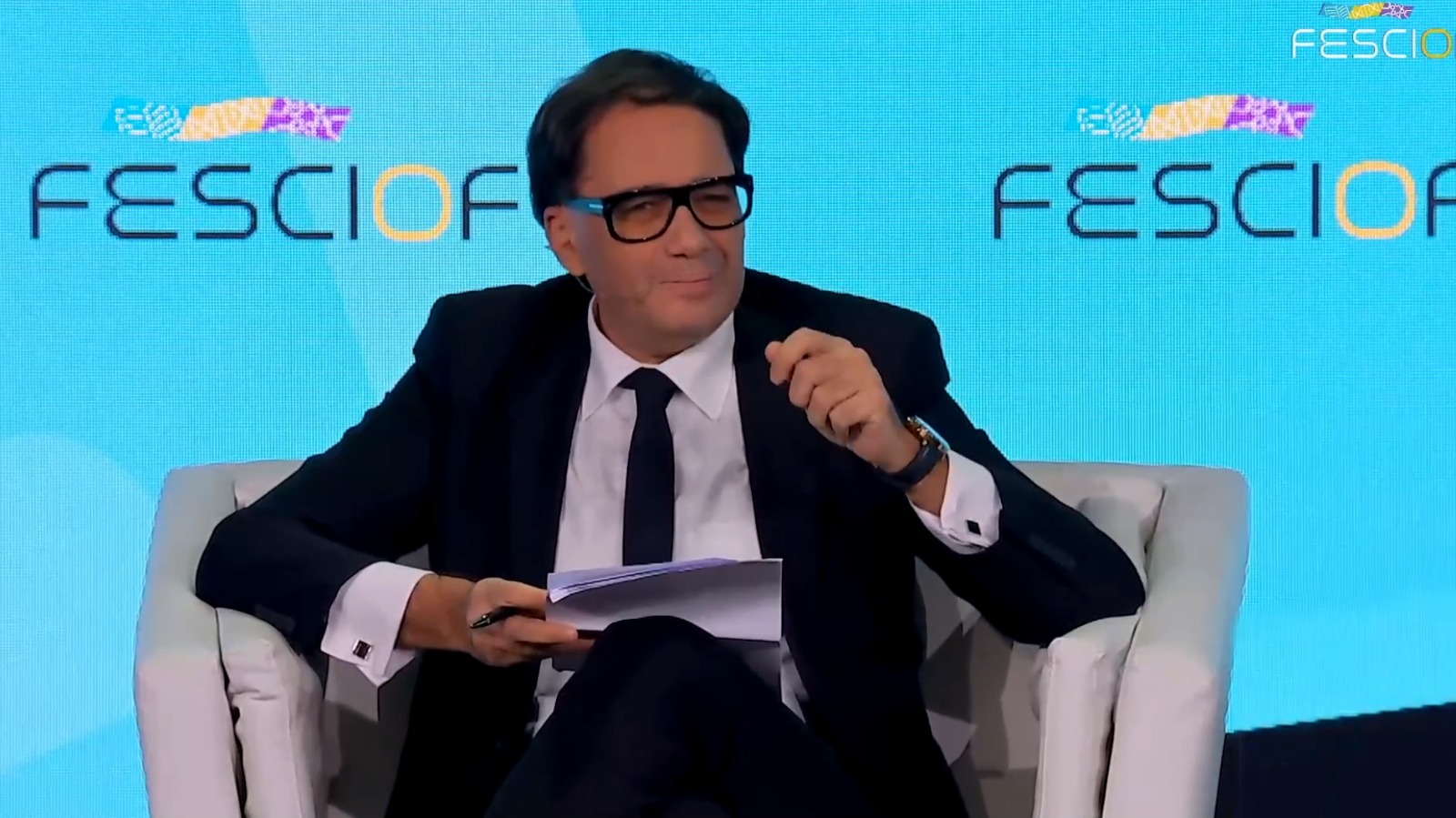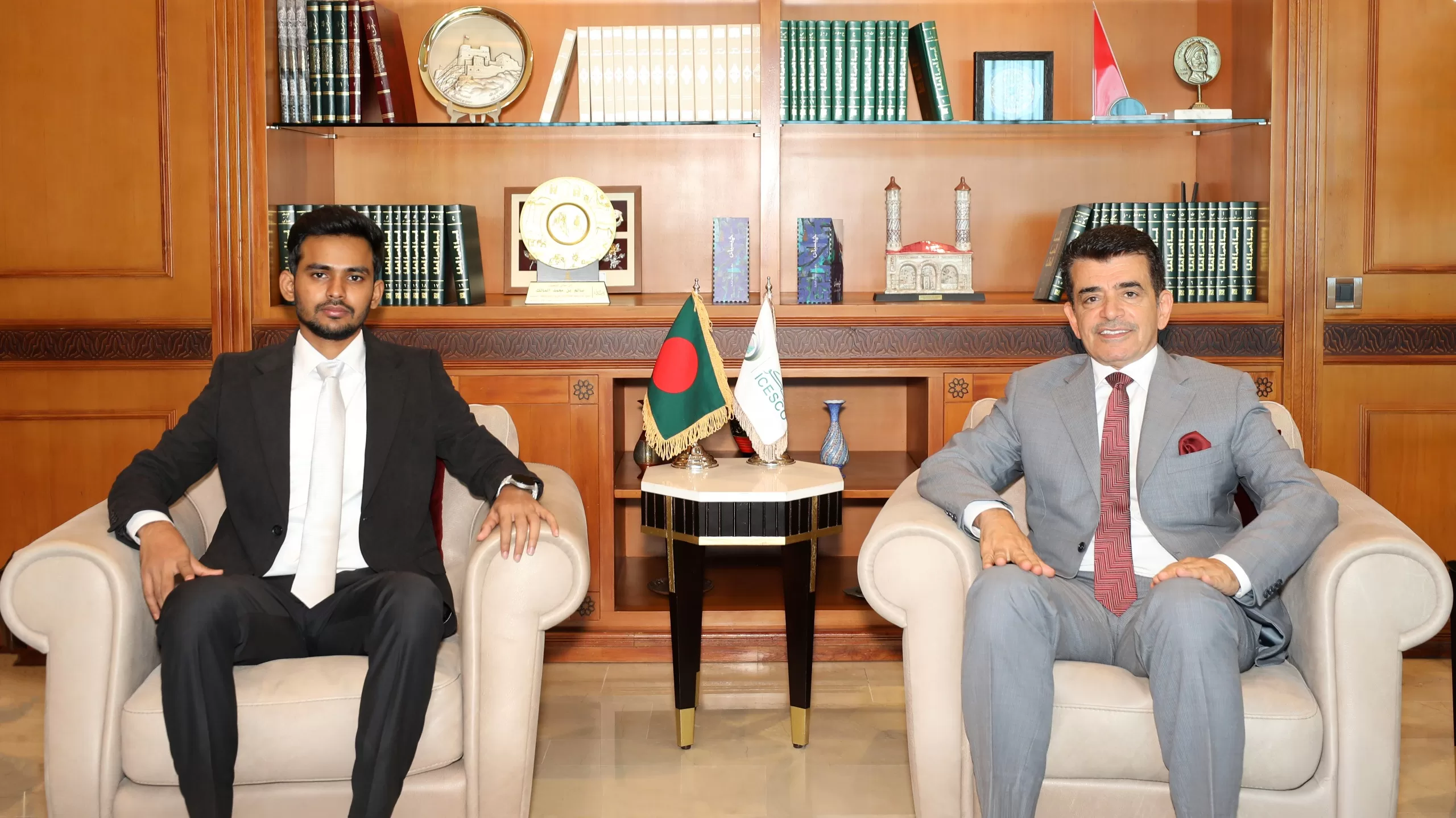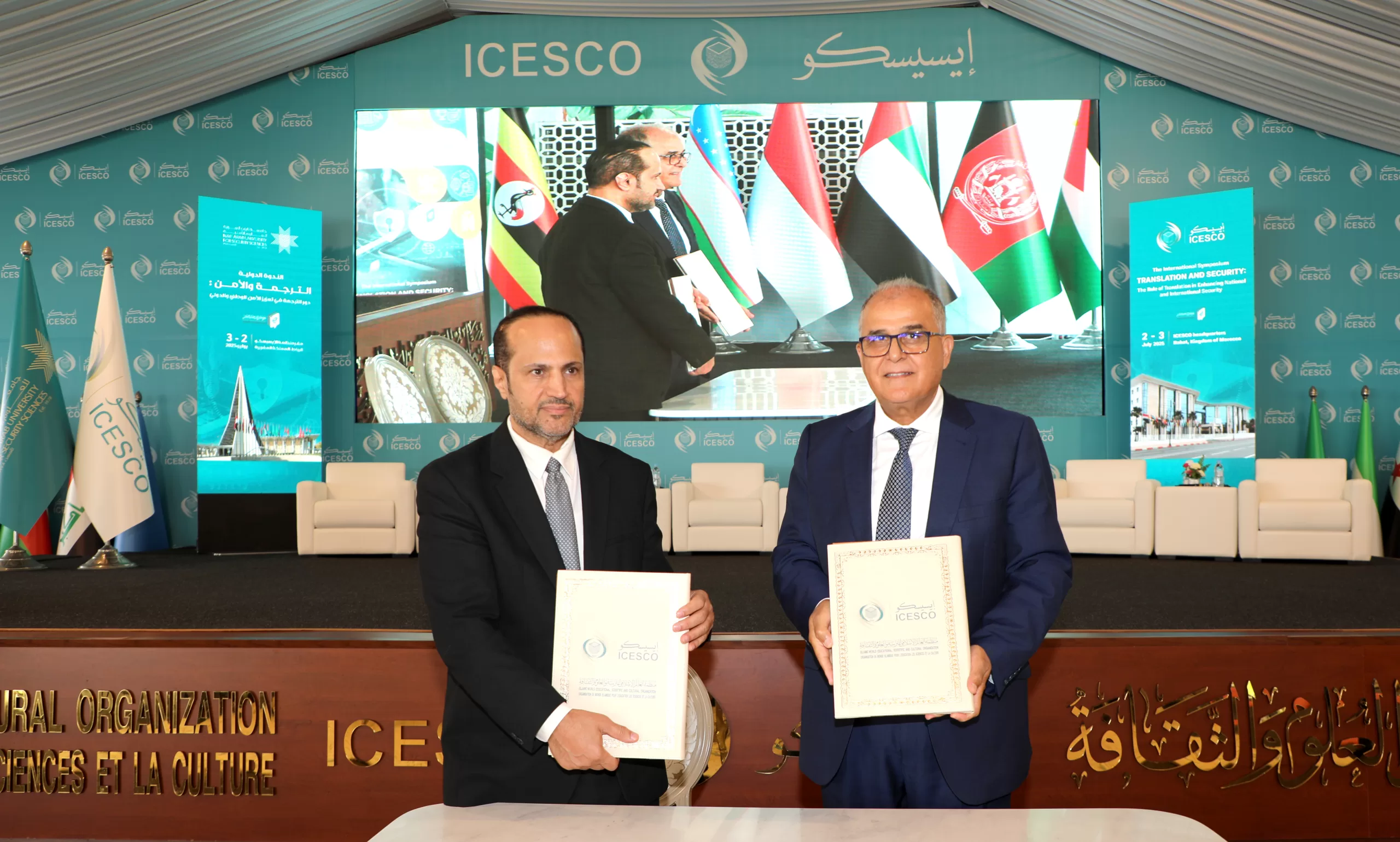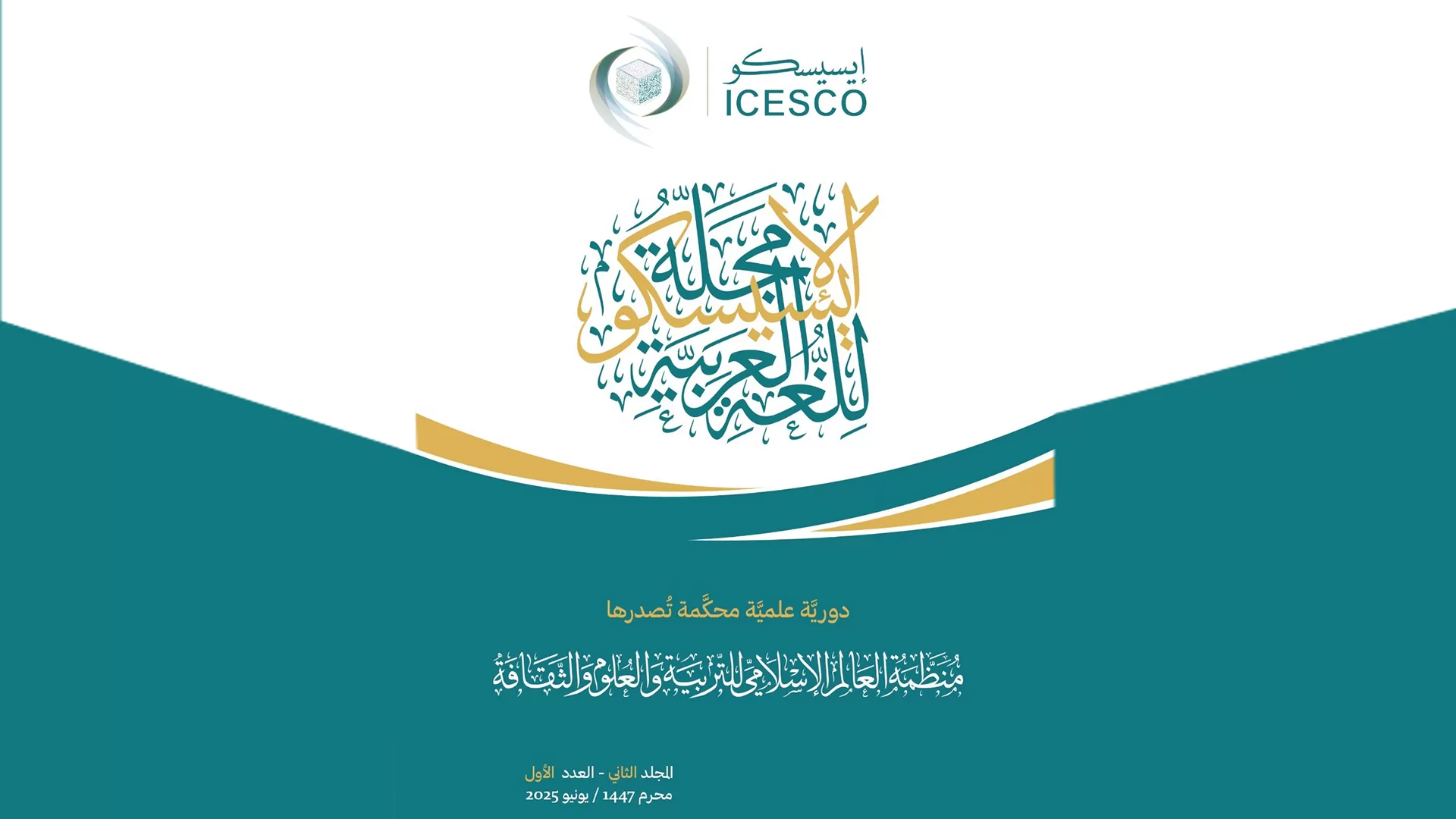
Review of ICESCO’s cultural strategy at Conference on Future of Education, Culture and Science Organizations

10 March 2023
The Islamic World Educational, Scientific and Cultural Organization (ICESCO) participated in the panel discussion on bridging the gap between science and society, which was held on the second day of the “Future of Education, Culture and Science Organizations” Conference. Themed “Together Towards Change in the 21st Century,” the event is organized by the Arab League Educational, Cultural and Scientific Organization (ALECSO) and the Saudi National Commission for Education, Culture and Science, with the participation of UNESCO and ICESCO, in Riyadh.
In his intervention during the session of March 9, 2023, Dr. Mohamed Zinelabidine, Head of ICESCO’s Culture and Communication Sector, gave a presentation that addressed three main axes. The first shed light on cultural policies in Member States and reviewed the reasons that could be preventing some countries from considering culture as a strategic sector of comprehensive and sustainable development, noting that ICESCO endeavors to devise effective solutions to this challenge.

The second axis explored ICESCO’s approach to setting culture as a stand-alone sustainable development goal (SDG) given its importance in shaping international economic, social, creative and digital policies. The third presented the Organization’s proposals for reinforcing the cultural dimension of development in comprehensive and sustainable national policies through scientific research and capacity-building programs in several Member States.
The ICESCO official concluded his intervention by reviewing different initiatives implemented by the Organization in this regard, notably the elaboration of statistical and quantitative studies on cultural indicators in the Member States and the development of a methodology for defining the domestic cultural product, as well as the mainstreaming of cultural rights and empowerment of countries where access to culture is constrained through education and training in arts, crafts, heritage and innovation.




